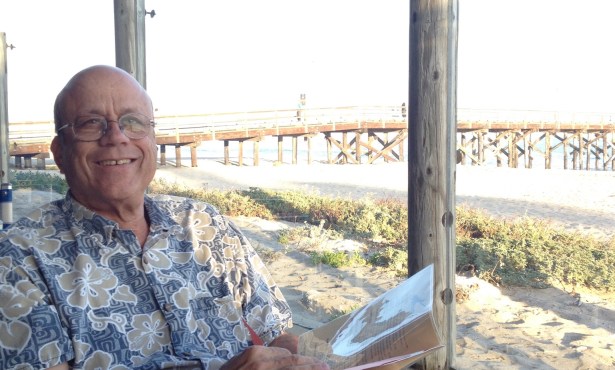Financial Aid and Isla Vista
Mike Miller and His Staff Do Everything They Can to Help
After all, the majority of IV’s residents are “college students,” a moniker which traditionally denotes a level of broke-ness.
As a UCSB student, I am among this legion, and we need help, big time. This is where Mike Miller comes in.
As the Acting Director of UCSB Financial Aid, it’s his job to deal with the doling out of financial help to UCSB students. Being that I am one of the thousands who have waited in line with a financial issue or question for one of his employees, I can’t imagine it’s an easy job to have. It’s a good thing he adores it.

“I love my job,” he told me. “I feel that never a day goes by when I don’t look forward to work. With Financial Aid, you’re most likely in it because you genuinely care about students.”
However, it’s also true that as the financial landscape has grown increasingly direr, Miller’s beloved job hasn’t gotten any easier. “Though we’ve been in a recession for about four years, this has been the most difficult year yet,” Miller noted. “Families have been exhausting their savings. This is the neediest population in the school’s history.”
From personal experience, I can say that being a part of the “needy” portion of the student population, while obviously difficult for a variety of other reasons, is helpful when it comes to receiving financial aid. If I didn’t receive any financial aid, I wouldn’t be able to go to college here. It’s as simple as that. Financial aid is my lifeline.
However, I also saw my family struggle to pay for my college education, before my financial situation became bleaker. We were solidly in the middle class for the early part of my college education: too well-off to receive much aid, but not near wealthy enough to comfortably pay for everything out of pocket.
According to Miller, that situation—being solidly in middle class—presents a problem for many.
On a white board mounted on the wall of his office, he drew a graph to illustrate the disparate financial situations of the students of UCSB. On a graph that ranged from “needy” to “no need” he drew a dramatic spike above “needy,” and then above “no need.” A flat line ran across the middle of the graph, the portion that represented middle class students.
“We have an abundance of needy and no need students, but the big problem is how do we help the middle class?” he asked. “The 32 percent increase [in tuition] was devastating to some people, though we were able to cover it for 65 percent of the student population,” Miller said.
Such students—as they don’t qualify for hefty financial packages and can’t afford to shell out the money themselves—are left to grapple with thousands of dollars in loans.
To students in this situation, Miller advises that students work to pay off their loans as quickly as possible.
“The total possible investment [in a UCSB education] is about $120,000,” he said. “Protect your investment. If you get out of school with as little debt as possible, you have protected your investment.” In an attempt to help students protect their investment in a college education, Miller has taken steps to make sure that students are given instruction the topic. “Since I came to UCSB, it surprised me that we didn’t have more personal finance [instruction]. Last year, we brought successful alumni as well as [school officials] to speak on the subject, and this year, we will have a panel set up to answer student questions. ”
However, the nationwide budget crisis has affected the financial department nearly as much as the students that they help. “We’ve had to reduce our hours,” Miller said. “We’ve had to do more with less…we have 16,000 financial aid applications to go through. Everybody has to more work, and we’ve had to let some staff positions go unfilled,” Miller said.
When asked about the future of financial aid, Miller was realistic.
“The next few years are going to be vital nationwide. Obama put money in Pell grants, and we’ve seen an $800 increase in Pell.” However, he said, it’s possible that grants will not keep increasing indefinitely, even with the cost of tuition rising.
The larger problem that Miller was speaking about—the financial crisis at large—is a problem out of his control, a problem for the state to grapple with.
In the meantime, I’m sure that financially troubled Isla Vista residents will continue to be able to count on the financial aid office to help assuage whatever financial problems they have the agency to change.



